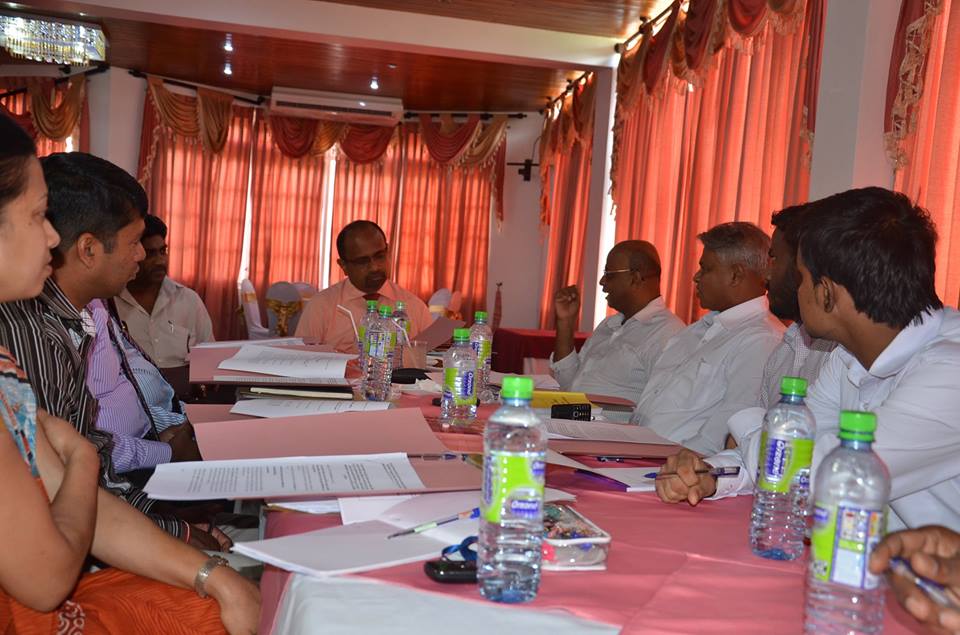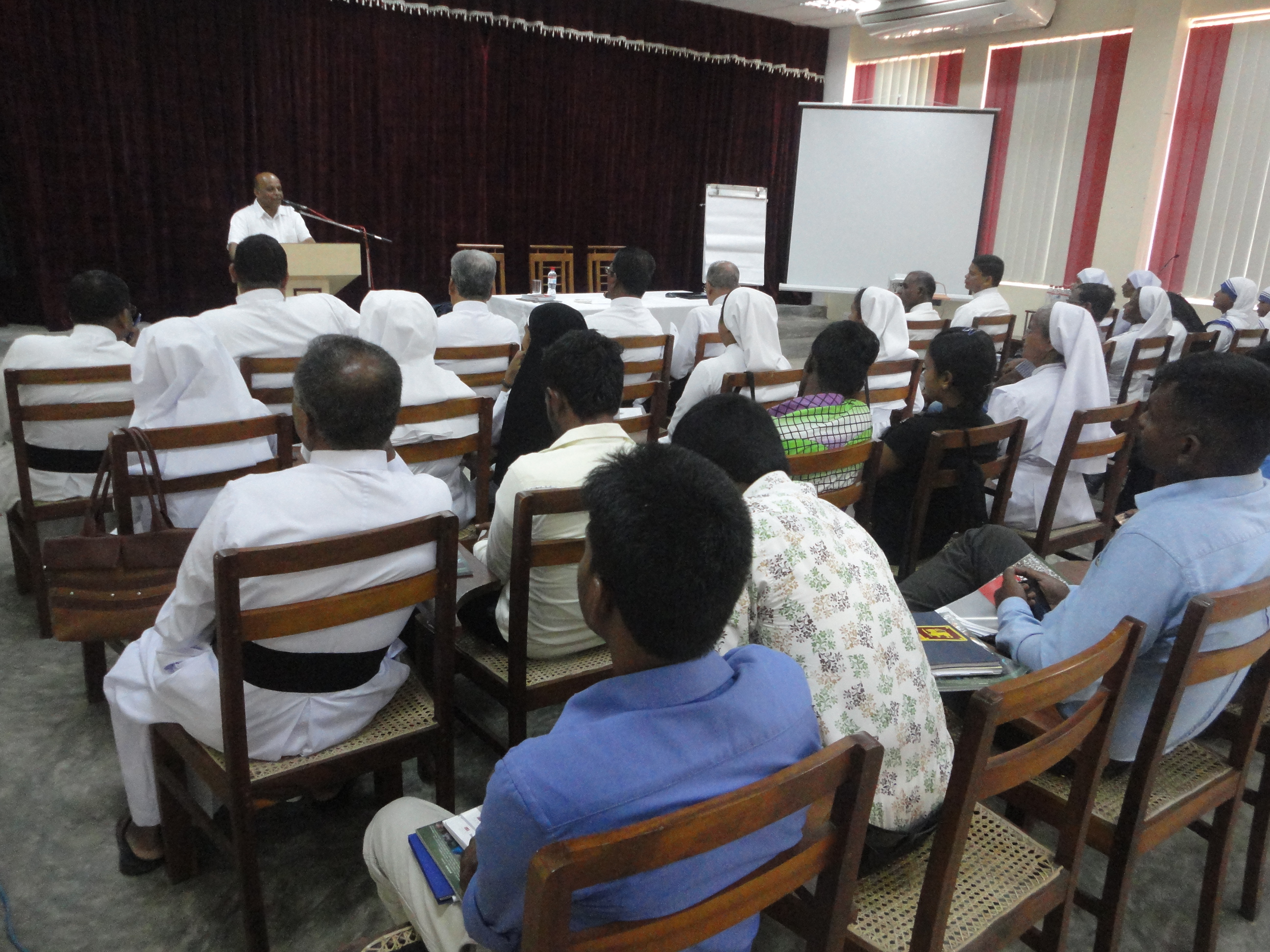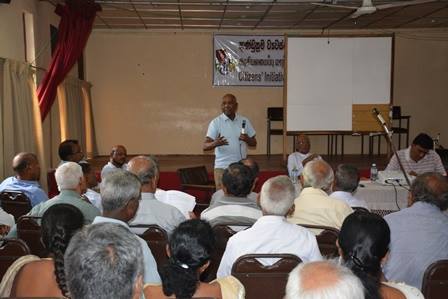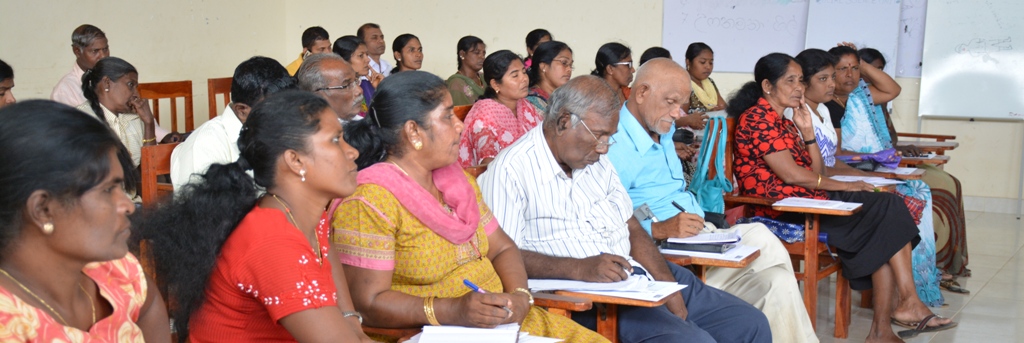by Lionel Guruge
The process of receiving submissions from the public for the new constitution is currently underway. The Public Representation Committee on Constitutional Reform has already begun travelling to all districts for this purpose, and submissions can be submitted verbally or in writing. Unfortunately, the enthusiasm to foster any discussion regarding this subject seems to lie more with civil society than with the government itself. More concerning is that the government does not seem to have reached an agreement on many aspects of the constitutional process, especially in terms of how the new constitution must be made and what must be included in it. Statements made by the President and the Prime Minister since January ninth have instilled a sense of faith in the system amongst citizens, and keeping with these promises of good governance, the government should show more enthusiasm in this process. Since the establishment of the Public Representation Committee on Constitutional Reform, many civil society representatives have already submitted proposals on behalf of the public, and many more hope to submit their proposals soon.
However, as expected with such monumental ventures, dissenters and ‘spoilers’ are not far behind in their efforts to disrupt the process. Indeed, opposition can be found in various pockets of society. At the forefront of this campaign are the religious and racial extremist groups as well as defeated political candidates that highlight their political ideologies and narrow-minded thinking by their actions and speech.
Religion is a deeply private and sensitive topic. Yet, these spoilers attempt to disassociate privacy from religion and portray religion to be at the centre of a democratic process such as constitution making. These groups prey on the sensitive nature of religion and thereby directly influence a large portion of society (especially the Sinhala Buddhist population). It must be understood that such initiatives do little to protect the sanctity of religion and more to disrupt the harmony within society so that these extremist groups may promote their own agendas. In order to counter such negative aspirations, Buddhist leaders must publish immediate statements against these initiatives. When queried about the Buddhism clause in the current constitution, the Prime Minister has declared that it will not change or be affected during the redrafting process. Those that believe such ideologies to be true should also consider the justification behind capitalising on religion within the process of discussing the democratic, governance-related exercise that is constitution making.
The 1978 Constitution currently in practice addresses religion in Chapter Two in the following manner:
9. “The Republic of Sri Lanka shall give to Buddhism the foremost place and accordingly it shall be the duty of the State to protect and foster the Buddha Sasana, while assuring to all religions the rights granted by Articles 10 and 14(1)(e)”
Article 10 and 14 state:
10. “Every person is entitled to freedom of thought, conscience and religion, including the freedom to have or to adopt a religion or belief of his choice.”
14. (1) Every citizen is entitled to
(e) the freedom, either by himself or in association with others, and either in public or in private, to manifest his religion or belief in worship, observance, practice or teaching.
As the Constitution clearly indicates, the rights of all religions in Sri Lanka are upheld as a Fundamental Right. It is important to note that the new constitution will not threaten this right in any way.
Sri Lankans are riddled with a myriad of issues that plague them on a daily basis. A new constitution might not be the solution to all these issues, but as the Supreme law of the land, it could be considered a great step forward in terms of progress. Such an opportune moment is clearly presented to us, and as civil society representatives actively invested in the constitutional process, we urge society to recognise the sensitivity of topics such as religion and to not take action to disrupt this process purely on the basis of such a sensitive topic.
With this new constitution comes the very real possibility of rearranging the structure of governance in Sri Lanka, especially in terms of abolishing executive power and devolving power in a more meaningful manner that benefits the public. It is this process that extremist groups are attempting to disrupt, and religious leaders, scholars, and politicians who truly care about the development of Sri Lanka and its residents should take an active stand against such initiatives. The process of drafting a new constitution reaches far beyond party-driven politics; it is a document with a legitimacy that will not be questioned for a long period of time, and one that will truly serve the interests of the nation. To hinder such a process due to narrow-minded, party driven political ideologies is to tamper with the lives of our children, our future generation.
Perhaps a day will come when Sri Lankan society will be open to discuss the association between religion and governance. It is the personal preference of this writer to exclude religion from the constitution entirely. Yet, this is not the time for Sri Lanka to consider such an alternative. The discussion of such a sensitive topic should be postponed for a later date; instead, the focus should be more on essential political reform processes that can be achieved through the new Constitution.
One of the main reasons issues arise within the constitution making discourse is due to ignorance with regard to constitution making. Many do not possess a broad understanding of our constitution, which is what ‘spoilers’ capitalize on. A remedy for this could be sought within the new constitution itself; the new constitution should stipulate that education on constitutional provisions should be included into the school curriculum in an incremental fashion from grade 3 to 11. Only then will citizens be molded who take a proactive stance in constitution making. Such persons would also be equipped with the knowledge to differentiate between those that aim to advance the agenda of the nation and those that aim to advance only their personal agendas.
The role of a proactive citizen does not end after providing input to the new constitution. Indeed, the constitution can only provide national-level instructions in one or two sentences. In order to strengthen these provisions and ensure that it reaches and influences the lives of citizens at a grassroots level, equally strong Acts, By Laws, and Statutes must be drafted at sub-national levels of governance. Public consultation must be mandatory during the process of drafting such legislations to ensure a truly democratic process fueled by participatory governance. Only then could a Constitution be regarded as one that serves the public.
The role of the media is severely understated during this current constitutional process. Both state and private media can go a long way in facilitating a broader discourse on the subject and reversing counter-productive attitudes. All media personnel should consider this to be a prime responsibility, and a concerted effort should be made if they wish to see a harmonious Sri Lanka.
This constitution is not for a privileged few. It is for all Sri Lankans regardless of their ethnicity, religion, gender, lifestyle choices, or personal beliefs. This is a historical moment to ensure a truly representative constitution is made for Sri Lanka. As Sri Lankans, let us not forgo this responsibility.
This post is also available in: සිංහල





